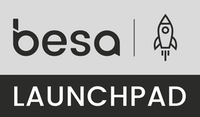Updated: Inspection and Personal Development Education 2023/24: How Is PSHE Being Inspected?

The 2023 Autumn term has been a busy one. This has included updates to the OFSTED School Inspection Handbook (2023) and the Independent Schools Inspection Framework (2023).Just like last year, we have compiled information from our partner schools, intel from schools we’ve worked at conferences and training events across the UK (Sept 23-Dec 23), and from a briefing we attended in November 2023 with HMI Polly Haste HMI Subject Lead for PSHE, RSHE and Citizenship at Ofsted. Here’s what you need to know about changes to how PSHCE, RSHE and PD are being inspected. The new ‘buzz word’ is connectedness.
Key points from briefing by Polly Haste, HMI Subject Lead for PSHE, RSHE and Citizenship, November 2023.
- PSHE should be part of a connected curriculum. This means pulling together all aspects of PSHE, Citizenship, RSHE and Personal Development Education into a cohesive programme.
- Inspectors are looking at how the curriculum enables students to make connections between subjects within the curriculum, out into the wider world and their lives.
- PSHE content and resource choices are up to leadership within schools. An inspection will look into how this content is connected to the schools whole curriculum, if it is ambitious, and how learning builds over time (spiral programme linked to student assessment in PSHE).
- Only ensuring your curriculum has coverage of the statutory content for RSHE is not considered total ‘compliance’.
- Students are being asked about connectedness. For example, how the protected characteristics of the Equality Act relate to British Values, learning in RE and Citizenship (and other areas of the curriculum), and their lives online.
- Schools are expected to allocate ‘proper’ time to PSHE.
- There is an expectation for staff responsible for curriculum delivery to be well-trained.
- School Leaders should be giving due consideration to PSHE as an important subject, and in particular its contribution to safeguarding.
- There should be a clarity of purpose. Staff and leaders should be able to explain what is taught, why it is taught and where it is taught, evidenced by pupil need.
- Inspectors will look for evidence about how students with additional needs are being catered for and included within PSHE.
- Pupil assessment should inform planning and teaching.
- Inspectors will examine the links between PSHE, pupil values and behaviour.
- Deep dive inspections in PSHE are no longer happening, apart from some in alternative provision settings. As per 2022-23 all schools will have PSHE looked at in more depth during inspection.
Assessment of PSHE/Personal Development Education
OFSTED highlights the benefits of assessment for pupils and teachers when it is an effective process that is not too demanding on teachers, their workload, or lowering the expectations of pupils' work. Therefore, school’s should consider how taxing their assessment process is on both teachers and pupils, and if they can create a system that benefits learning and enables student progress. Assessment in PSHE is expected.
Key updates to the Independent Schools Inspection Framework - September 2023.
The updated Independent Schools Inspection Framework took effect from September 2023. The inspection framework has a four part structure. There are two sections (Section 3: Pupils’ physical and mental health and emotional well-being and Section 4: Pupils’ social and economic well-being and contribution to society) that are highly relevant to the PSHE, PD and RSHE provision within schools. There is also a separate section on safeguarding.
Inspecting Student’s Wellbeing.
The revised Independent Schools Inspection Framework now has a greater emphasis on the importance of pupils' wellbeing. The framework also states that pupil wellbeing will be central to inspections.
Wellbeing is defined as:
- Pupils' physical and mental health and emotional wellbeing
- Protection of pupils from harm and neglect
- Pupils' education, training and recreation
- Pupils' contribution to society
- Pupils' social and economic wellbeing
Leadership must ensure that the school’s curriculum is implemented effectively through appropriate plans and schemes of work which:
- reflect the school’s aims and ethos
- encourage mutual trust and respect for other people, particularly those with protected characteristics
- develop pupils’ spiritual and moral knowledge and understanding
- actively promote development of pupils’ self-knowledge, self-esteem and self-confidence.
- should include PSHE lessons with statutory RSHE in place
- actively promotes fundamental British values
- develops pupils’ social and cultural knowledge and understanding
- gives pupils of secondary age (11+) access to accurate, up-to-date, impartial careers guidance so that they are able to make informed choices about a broad range of careers options and which helps them to fulfil their potential.
Increased emphasis on ‘social wellbeing’ and ‘society’
Leadership must ensure that pupils are effectively prepared for the opportunities, responsibilities and experiences of life in British society by:
- enabling pupils to - distinguish right from wrong
- respecting the civil and criminal law of England
- acquiring a broad general knowledge of and respect for public institutions and services in England
- encouraging pupils to accept responsibility for their behaviour, respect other people, paying particular regard to the protected characteristics
- showing initiative and understanding of how they can contribute positively to the lives of those living and working in the locality in which the school is situated, and to society more widely
- acquiring an appreciation of and respect for their own and other cultures which furthers and promotes tolerance and respect between different cultural traditions
- respecting democracy and supporting participation in the democratic process, including respect for the basis on which the law is made and applied in England. Where political issues are brought to pupils’ attention, including in the promotion at the school and/or during extra-curricular activities, pupils are offered a balanced presentation of opposing views of political issues, and the promotion of partisan political views is precluded.
Pupil Voice/Views
The new framework seeks to include pupils’ views within the inspection process and to see that it is promoted as part of the school’s day-to-day life. The framework states that pupils ‘views, wishes and feelings about their school experience should be taken into account by the school.’ Inspectors will be interested to hear how the school collects pupil voice, and how this is acted upon.
What’s happening in reality? What are schools who have been inspected telling us?
Basically, everything above is happening on the ground. As with 2022-23, schools have told us how surprised they’ve been at the depth of inspection around PSHE and its particular relevance for safeguarding pupils. Some schools have also been surprised by being given one grade lower than they expected for their Personal Development/ Wellbeing judgement. From everything schools have told us we’ve been able to formulate these ‘Top Tips’. We can’t guarantee that your inspection will cover all of these points, but from the many schools we’ve spoken to, they have intimated these are likely to be included within any judgement where PSHE is involved.
- You need to be able to show where PSHE delivers on Keeping Children Safe in Education (KCSIE) and how they are an interlinked aspect of the school’s statutory safeguarding duties.
- Any member of staff who teaches PSHE should be able to explain the ‘what, whens and hows’ of the PSHE curriculum.
- Where there are large staff teams inspectors will look at consistency.
- Inspectors will make a judgement based on triangulating your curriculum offer, safeguarding, behaviour, pupil attitude and values, and your whole school approach to student Personal Development/Student wellbeing.
- Make it obvious to inspectors where statutory content is being taught.
- Think about the connectedness of your curriculum, can students and staff evidence this if asked?
- Knowing the needs of your pupils is vital and have PSHE closely matched to this.
- Leadership and management judgements are being affected in some schools if School Leaders are not giving sufficient attention to PSHE.
- Assessment should include individual pupil assessment. It’s Ok to have group/ class assessments but inspectors are likely to ask about individual pupil progress and how this is tracked. They are also likely to focus on knowledge acquisition rather than skills in terms of pupil assessment. (Although this isn’t best practice in PSHE).
- Your PSHE should be challenging and relevant for pupils. If you have lack-lustre resources and/or teachers who pay lip-service to PSHE then you need to make changes - quickly.
- Pupils with additional needs should be supported appropriately so they can understand and access PSHE.
- If you’re using ‘off-the-peg’ resources from whatever source, some inspectors have been asking to see adaptation based on the needs of the group being taught.
Five ways Chameleon PDE can help
If you’re already a Chameleon partner school you will recognise that our award-winning wrap-around support can support you with inspection. In fact, we have good evidence that our partner schools are obtaining good (and some outstanding) inspection results. Here’s how Chameleon can help (and you don’t always need to be a partner school!)
- Every year we hold a range of free webinars across a range of PSHE themes. You can see our latest events here .
- Our flexible and adaptable resource library means schools can build a bespoke programme closely matched to student needs. Lesson content is interleaved- meaning the connectedness is baked-in.
- Our ‘How Are You?’ student voice survey service allows schools to collect a range of evidence related to PSHE and wellbeing. Partner schools have the survey included with their resources, but if you’re not a Chameleon partner you can purchase the survey service separately here (or become a partner school) Inspectors have described the data schools receive from the survey as ‘gold-dust’, so that’s a pretty strong validation it’s worthwhile endeavour. The survey is easily deployed and we do all the analysis and reporting for you.
- Partner schools have access to our assessment resources - these also have ‘connected learning’ as a central premise.
- Articles and blogs - we are always adding to the articles and blogs on our website and these are free to access.
If you require any support with PSHE or are considering becoming a Chameleon PDE partner school we offer a free online consultation (with no obligation to purchase) about any aspect of PSHE. Email us to book your slot info@chameleonpde.com




